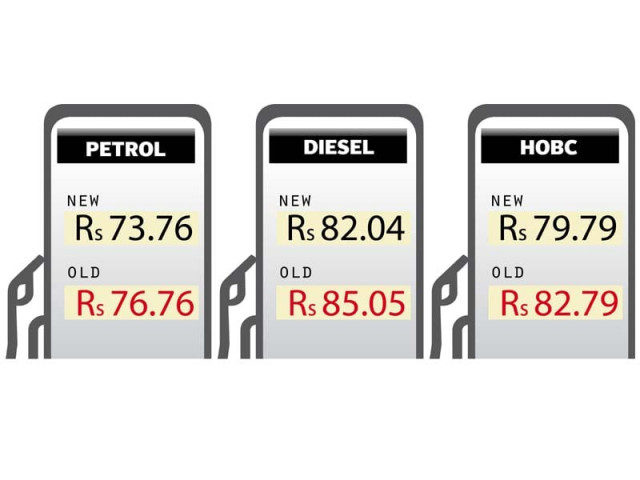Gas rates to go up 3.8%, petrol prices down 3.9%
Prices for industrial, commercial users to converge closer to global rates

Prices for industrial, commercial users to converge closer to global rates.
As Pakistan’s domestic gas production capacity begins to dwindle, the government on Monday made the critical decision to begin converging domestic gas prices to international levels, as more and more of the nation’s gas supply is expected to come from imports. To soften the blow of higher gas prices, the government decided to lower oil prices for consumers.
The announcement was made by Petroleum Minister Shahid Khaqan Abbasi and Information Minister Pervaiz Rashid. For the first time in recent memory, the hike in gas prices will include domestic consumers, the single largest, most inefficient block of users of natural gas, and one that has traditionally been exempt from prices increases in the past.
Prices for domestic consumers who use up to 100 cubic feet will be increased from Rs106 per million British thermal units (mmbtu) to Rs110 per mmbtu, a 3.8% increase that translates to less than Rs16 per month, on average. For those using between 100 and 200 cubic feet, the price will also be increased by 3.8% from Rs212 to Rs200 per mmbtu, a change that translates to an average of just Rs64 per month extra. A similar increase was also announced for domestic users with consumption between 200 and 300 cubic feet, amounting to an average increase in bills of Rs96 per month.
For domestic consumers who use more than 300 cubic feet, prices will rise by 13% from Rs531 to Rs600 per mmbtu, in line with the price that will now be charged for power plants, industrial users, and captive power generation, all of which will now pay the same price of Rs600 per mmbtu. For industrial users and power generation, that amounts to a 23% increase from the previous rate of Rs488 per mmbtu. For captive power, the increase is a much smaller 4.8% from the previous Rs573 per mmbtu.
Gas prices will be up 1% for the cement sector from Rs743 to Rs750 per mmbtu, up 16.7% for compressed natural gas (CNG) fueling stations from Rs600 to Rs700 per mmbtu, and up 9.9% for commercial users from Rs637 to Rs700 per mmbtu. For new fertiliser plants with sovereign guarantees for their gas supply, gas will cost Rs72 per mmbtu, up 5.9% from Rs68 per mmbtu. For older plants, the price will rise from Rs123 to Rs200 per mmbtu, a 38.5% increase, but still resulting in a price well below the national average.
The total impact of this natural gas price increase will come to Rs70 billion extra per year in natural gas costs borne by various users across the economy.
The prices of petrol will be cut by 3.9%, or Rs3 per litre from Rs76.76 per litre to Rs73.76 per litre. Diesel prices will go down by 3.5% from Rs85.05 per litre to Rs82.04 per litre. High Octane Blended Component will be 3.6% cheaper, from Rs82.79 per litre to Rs79.79 per litre. Kerosene will be Rs3 per litre, or 5% cheaper, to Rs57.11 per litre. Light diesel oil prices will decline by Rs3 per litre, or 5.3%, to Rs56.59 per litre.
Abbasi also said that the petroleum minister had sought permission from the Council on Common Interests to regulate prices of liquefied petroleum gas (LPG) to Rs900 per cylinder. The current price for similarly-sized cylinder vary from Rs750 to Rs2,000 per cylinder in different parts of the country.
The minister also announced that the government would sign an agreement in September for the import of liquefied natural gas (LNG) from Qatar.
Published in The Express Tribune, September 1st, 2015.



















COMMENTS
Comments are moderated and generally will be posted if they are on-topic and not abusive.
For more information, please see our Comments FAQ